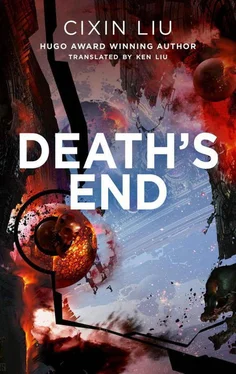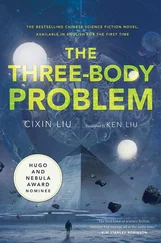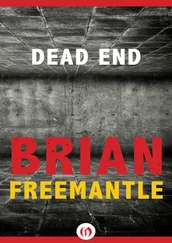The last session of the PDC marked the first time a resolution had been passed based on a proposal that wasn’t even written down. And Cheng Xin got to witness the debating skills of Wade, usually a man of few words. He argued that if we assumed the Trisolarans were capable of reviving a body in deep freeze, then it made sense to assume they were also capable of reviving a bare brain in similar condition and conversing with it through an external interface. Surely such a task was trivial for a civilization capable of unfolding a proton into two dimensions and etching circuits over the resulting surface. In some sense, a brain was no different from the whole person: It possessed the person’s thoughts, personality, and memories. And it most definitely possessed the person’s capacity for stratagems. If successful, the brain would still be a ticking bomb in the heart of the enemy.
Although the PDC members did not fully agree that a brain was the same as a whole person, they lacked better choices, especially since their interest in the Staircase Program was largely based on the technology for accelerating the probe to 1 percent of lightspeed. In the end, the resolution passed with five yeses and two abstentions.
Once the Staircase Program was approved, the problem of who should be sent came to the forefront. Cheng Xin lacked the courage to even imagine such a person. Even if his or her brain could be captured by the Trisolarans and revived, life afterwards—if such an existence could be called life—would be one interminable nightmare. Every time she thought about this, her heart felt squeezed by a hand chilled to minus-two-hundred-degrees Celsius.
The other leaders and implementers of the Staircase Program did not suffer her pangs of guilt. If PIA were a national intelligence agency, this matter would have been resolved long ago. However, since PIA was only a joint intelligence committee formed by the permanent member nations of the PDC, after the Staircase Program was revealed to the international community, the issue became extremely sensitive.
The key problem was this: Before launch, the subject would have to be killed.
After the initial panic of the Crisis subsided, a mainstream consensus gradually dominated international politics: It was important to prevent the Crisis from being leveraged as a tool to destroy democracy. PIA personnel were instructed by their respective nations to be extra careful during the process of selecting potential Staircase Program subjects and not commit political errors that would embarrass their countries.
Once again, Wade came up with a unique solution to the difficulty: advocating, through the PDC and then the UN, the passage of euthanasia laws in as many countries as possible. But even he wasn’t confident that this plan would work.
Of the seven permanent members of the PDC, three quickly passed euthanasia laws. But these laws all clearly provided that euthanasia was only available to those suffering terminal illnesses. This was not ideal for the Staircase Program, but it seemed the outer boundary of political acceptability.
Thus, candidates for the Staircase Program had to be chosen from the population of terminally ill patients.
—————
The thunderous noises and bright lights in the sky faded. The missile launches had come to an end. Wade and a few other PDC observers got into their cars and left, leaving only Vadimov and Cheng Xin.
“Why don’t we take a look at your star?” he said.
Four days ago, Cheng Xin had received the deed to DX3906. She was utterly surprised and fell into a delirium of joy. For a whole day, she kept on repeating to herself: Someone gave me a star; someone gave me a star; someone gave me a star….
When she went to see Chief Wade to give a status report, her happiness was so palpable that Wade asked her what the matter was with her. She showed him the deed.
“A useless piece of paper,” he said, and handed it back to her. “If you’re smart, you should drop the price and resell it right away. Otherwise you’ll end up with nothing.”
But Cheng Xin wasn’t bothered by his cynicism—she had already known what he was going to say. She knew very little about Wade except his work history: service in the CIA, then deputy secretary of Homeland Security, and finally here. As for his personal life, other than the fact that he had a mother and his mother had a kitten, she knew nothing. No one else did, either. She didn’t even know where he lived. He was like a machine: When he wasn’t working, he was shut down somewhere unknown.
She couldn’t help but bring up the star to Vadimov, who enthusiastically congratulated her. “Every girl in the world must be jealous,” he said. “Including all living women and dead princesses. You’re certainly the first woman in the history of humankind to be given a star.” For a woman, was there any greater happiness than to be given a star by someone who loved her?
“But who is he?” Cheng Xin muttered.
“Shouldn’t be hard to guess. He must be rich, for one thing. He just spent a few million on a symbolic gift.”
Cheng Xin shook her head. She’d had many admirers and suitors, but none of them were that wealthy.
“He’s also a cultured soul. Stands apart from the crowd.” Vadimov sighed. “And he just made a romantic gesture that I’d call fucking ridiculous if I read it in a book or saw it in a movie.”
Cheng Xin sighed as well. A much younger Cheng Xin had once indulged in rose-tinted fantasies that the Cheng Xin of the present would mock. This real star that appeared out of nowhere, however, far exceeded those romantic dreams.
She was certain that she knew no man like that.
Maybe it was a secret admirer from afar who, on impulse, decided to use a tiny part of his vast wealth to indulge in a bit of whimsy, to satisfy some desire she would never understand. Even so, she was grateful.
That night, Cheng Xin climbed onto the top of One World Trade Center, eager to see her new star. She had carefully reviewed the materials that accompanied the deed explaining how to find it. But the sky in New York was overcast. The next day and the day after were the same. The clouds formed a giant teasing hand that covered her gift, refusing to let go. But Cheng Xin wasn’t disappointed; she knew she had received a gift that couldn’t be taken away. DX3906 was in this universe, and it might even outlast the Earth and the Sun. She would see it, one day.
She stood on the balcony of her apartment at night, gazing up at the sky and imagining her star. The lights of the city below cast a dim yellow glow against the cloud cover, but she imagined her star giving the clouds a rosy glow.
In her dream, she flew over the star’s surface. It was a rose-colored sphere, but instead of scorching flames, she felt the coolness of a spring breeze. Below her was the clear water of an ocean, through which she could see swaying, rose-colored clouds of algae….
After she woke up, she laughed at herself. As an aerospace professional, even in her dreams she couldn’t forget that DX3906 had no planets.
On the fourth day after she received the star, Cheng Xin and a few other PIA employees flew to Cape Canaveral to attend the launch ceremony for the first batch of missiles. Achieving orbit required taking advantage of the Earth’s spin, and the ICBMs had been moved here from their original deployment bases.
The trails left behind by the missiles gradually faded against the clear night sky. Cheng Xin and Vadimov reviewed the observation guide for her star. Both had had some training in astronomy, and soon they were looking at the approximate location. But neither could see it.
Vadimov took out two pairs of military-issue binoculars. With them, it was easy to see DX3906. After that, even without the binoculars, they could find the star. Cheng Xin stared at the faint red dot, mesmerized, struggling to comprehend the unimaginable distance between them, struggling to translate the distance into terms that could be grasped by the human mind.
Читать дальше












